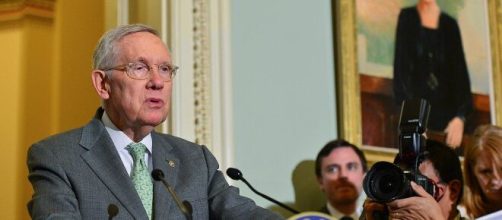Harry Reid was arguably the most influential figure in Nevada politics for many years. Even after he no longer held political office. He would also become one of the most powerful politicians in the United States period.
Reid would garner a reputation as being almost ruthlessly effective. He would rise to become the top member of the United States Senate. A fierce partisan Democrat, his record has been seen as a mixed bag by many pundits. Including being cited by many onlookers as a leading cause of the polarization of modern American politics.
Reid's legacy is now left for students of history to examine.
Passed away from pancreatic cancer on December 28, 2021
Former U.S. Senate Majority Leader Harry Reid has died. He was the second former majority leader of the U.S. Senate to pass away in December 2021. Following Republican Bob Dole of Kansas earlier in the month, who died of lung cancer.
Reid had been dealing with many health issues in recent years. Not least of which was his journeys with pancreatic cancer. Previously, while he was the majority leader, Reid suffered an accident while exercising. The accident left him with multiple broken bones and led to other serious health problems, including nearly going blind in one eye and a blood clot.
Harry Reid first ran for the United States Senate from Nevada in 1974. Longtime Democratic incumbent Alan Bible, chairman of multiple Congressional committees, chose not to run for re-election. Reid would narrowly lose the general election to Republican former Governor Paul Laxalt.
Several years later, Laxalt chose not to go for another re-election bid in 1986.
Reid would run for the seat again. This time, he would win it over former U.S. Representative James David Santini.
Reid was re-elected to the Senate four times. Along the way, he became chairman of the Senate Ethics Committee. He also served as minority whip, the majority whip, minority leader, and majority leader. In 2016, he would not run for another term in the Senate.
Former Democratic Nevada Attorney General Catherine Cortez Masto was elected to succeed him in his seat. New York U.S. Senator Chuck Schumer was selected to follow Reid as the leader of the Senate Democratic Caucus. The move also effectively made Schumer the Senate minority leader at the time.
Had a lengthy earlier political career
Reid had been the city attorney of Henderson, Nevada, earlier in his career. In 1968, he would be elected to the Nevada Assembly. He was later chosen to serve as lieutenant governor under Governor Mike O'Callaghan. O'Callaghan had been Reid's history teacher and boxing coach at Basic High School in Henderson.
After losing to Laxalt, Harry Reid was also an unsuccessful candidate for mayor of Las Vegas.
He failed to former Nevada Assemblyman and Clark County Commissioner William H. Briare.
In 1982, Reid was elected to the U.S. House of Representatives from the newly-created 1st District of Nevada. He was re-elected in 1984.
Was born and raised in Nevada
Harry Reid was a native of Searchlight, Nevada. After graduating from high school in nearby Henderson, he attended Southern Utah University. Later, he graduated from Utah State University. There, Reid double-majored in history and political science. In addition to minoring in economics at Utah State's Jon M. Huntsman School of Business.
Later, Reid obtained his law degree from the George Washington University Law School. While a student there, he worked as a United States Capitol Police member.
In 1959, Reid married his high school sweetheart, Landra Gould. They would have five children. Their eldest son, Rory, would be elected to the Clark County Commission, eventually becoming its chairman. In 2010, the younger Reid was the Democratic nominee for governor of Nevada. He would lose handily to the Republican nominee, former federal judge, Nevada Attorney General, and Assemblyman Brian Sandoval.


